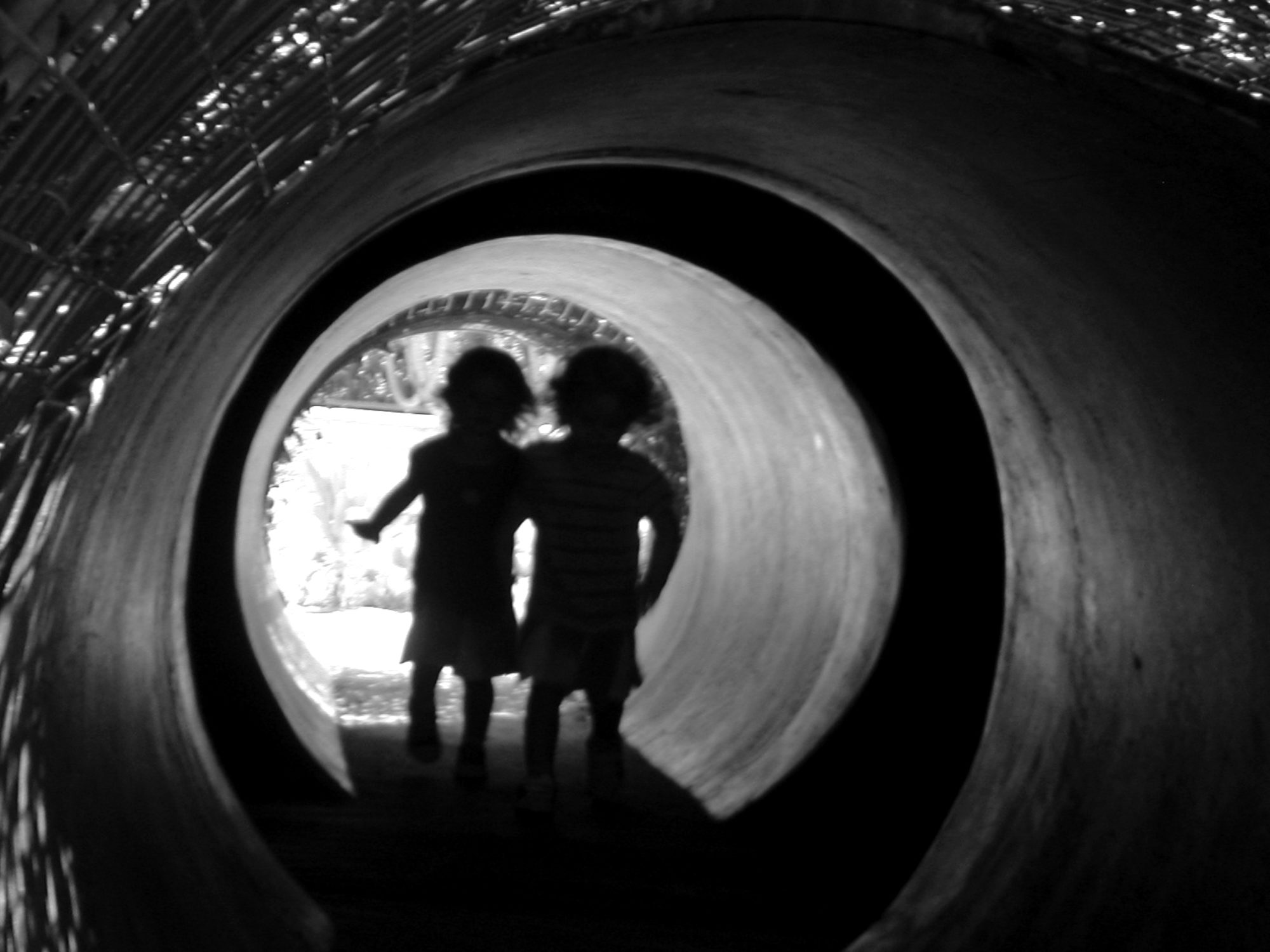by Diana Day

Daddy reading to Djuna
and Dinah
I had the opportunity to meet movie producer Bonnie Arnold the other day at a press junket for the upcoming DreamWorks animated feature Over the Hedge (very cute movie, funny, well worth seeing … best for kids who can handle the loud, raucous scenes and the scary bear, very effectively voiced by Nick Nolte; I’ll link to the feature I’m writing when it comes out on May 19, the day of the movie’s release).
Bonnie Arnold produced Toy Story, one of my all-time favorite movies. For having produced such a classic movie, she didn’t appear to have too many secrets of success. She really had one message: tell a good story, and try to work with other people who want to tell a good story too.
In journalism school, learning to tell good stories is a recurring theme. Years ago, in the early 90s, when I was learning to teach kids how to read, it was all about story structure and how kids come to us primed for enjoying and retaining the basic structure of a good story.
But seeing my kids learning to love a good story is more thrilling than seeing it as a writer or as a teacher.
My daughters Dinah and Djuna, 2 1/2, both love to “read” their books. We have truckloads of books and magazines in the house for them to enjoy, and we are starting to appreciate our local library now that the girls don’t run up and down the aisles, giggling wildly. My husband and I read to them at every naptime and bedtime and every time they ask during the day.
They both read stories from memory, as so many kids do. Djuna almost always starts off her retellings by saying, “One day … .”
From a reading specialst’s point of view, this amazes me and proves everything I learned in my teacher’s training. Kids do come with a knack, an instinct, for internalizing story structure.
“One day … ” is the beginning of every story. First, the scene is set, and then “one day” brings you to the problem in the story — that specific day when everything is different from all the other days before it, as in: One day, Miss Gulch came and took Dorothy’s dog away from her family …
And, then, recently, I heard Djuna start to insert a new word into her memory retellings — meanwhile. This excited me even more. Meanwhile! A great transitional word, a word that introduces a plot complication, as in: Meanwhile, as Dorothy ran away from home through the countryside, a great storm was brewing.
When I was a fifth and sixth grade teacher, I often had parents come in and look to me for solidarity when they would turn their noses up at serial books like Nancy Drew mysteries or Bobbsey Twins books, or any number of other formula pulp fiction for kids. (These parents wanted their kids to be reading only high class literature that could guarantee admission to Harvard.)
I was never an ally for these types. I lived and breathed Nancy Drew as a kid, and I still managed to become a successful adult. And now, I firmly believe that anything that reinforces story structure, even if it’s bland and predictable — and sometimes, because it’s predictable — is great for kids to read.
Predictable story structures, complete with their one days and their meanwhiles, are what give children the bedrock they need to deal with more complicated literature, as in: One day, Hamlet returned from college to find his father dead and his mother remarried to his uncle. Meanwhile, people were seeing the ghost of Hamlet’s murdered father out and about in the castle …
